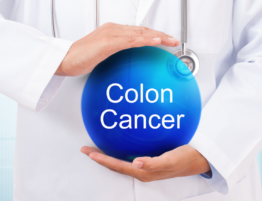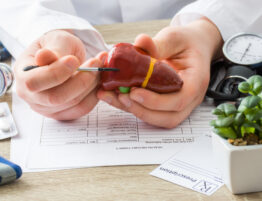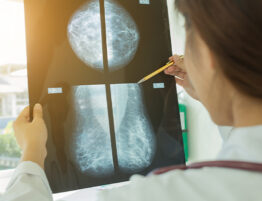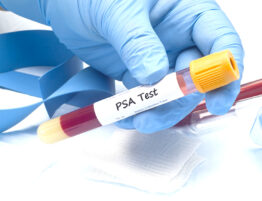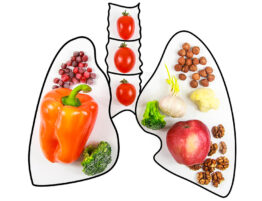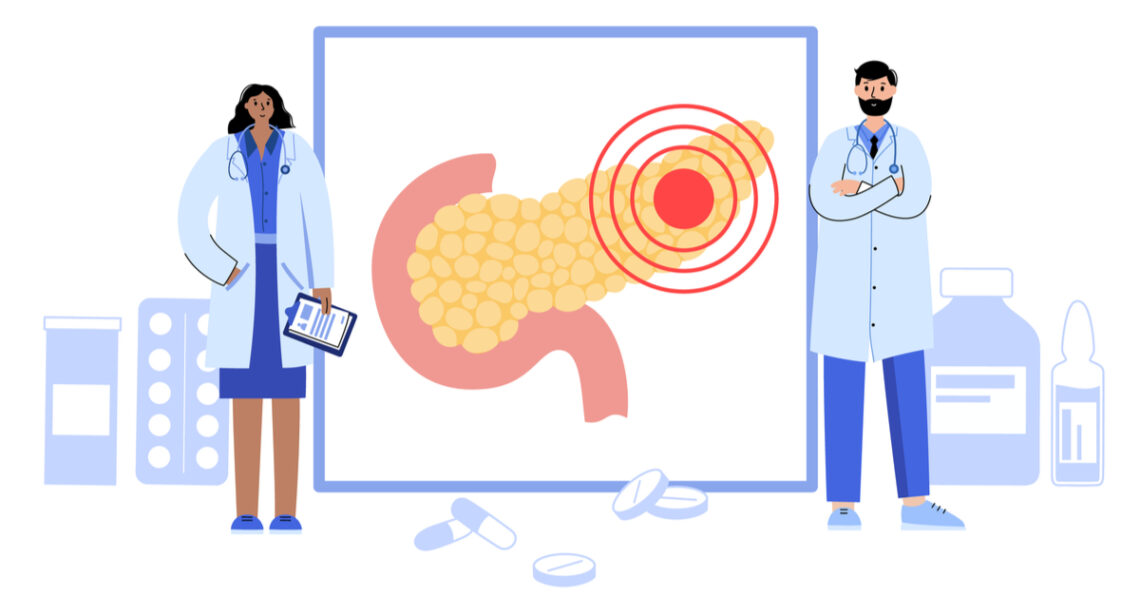
Pancreatic cancer is a type of cancer that originates in the pancreas. Pancreas is an organ located behind the stomach that is responsible for releasing enzymes that help with digestion (exocrine function) and produces hormones, including insulin and glucagon, that help manage the blood sugar (endocrine function).
Pancreatic cancer accounts for about 7% of cancer deaths in the US. The American Cancer Society’s estimates for pancreatic cancer incidence in the United States for 2020 are:
Types of pancreatic cancer:
Exocrine pancreatic cancer: the most common type of pancreas cancer that originates from exocrine cells of the pancreas. Exocrine cells are responsible for secretion of pancreatic enzymes into the ducts of the pancreas.
- Pancreatic adenocarcinoma (pancreatic exocrine cancer): the most common type of pancreatic cancer, which originates from the cells that line the ducts of the pancreas
- Less common types of exocrine pancreatic cancer include: adenosquamous carcinomas, squamous cell carcinomas, signet ring cell carcinomas, undifferentiated carcinomas, giant cell tumour
Endocrine pancreatic cancer: less common type of pancreatic cancer that originates from endocrine cells of the pancreas. Endocrine cells are responsible for secretion of hormones into the blood vessels.
- Also known as pancreatic neuroendocrine tumors (PNETs), islet cell tumors or pancreatic endocrine cancers
- Types of neuroendocrine tumour include: insulinoma, glucagonoma, gastrinoma, somatostatinoma, VIPomas and PPomas
What are the risk factors of pancreatic cancer?
- Gender: risk of developing pancreatic cancer is higher with age
- Race/ethnicity: African Americans have slightly higher risk of developing pancreatic cancer than Caucasians
- Family history of pancreatic cancer
- Inherited genetic syndromes: such as BRCA1 or BRCA2 gene mutation, Lynch syndrome, FAMMM syndrome, Peutz-Jeghers syndrome
- Chronic pancreatitis: is a chronic inflammation of the pancreas, often associated with heavy alcohol consumption and smoking
- Smoking: risk of developing pancreatic cancer is twice as high for smokers than non-smokers
- Obesity: risk of developing pancreatic cancer is higher for people who are overweight
- Diabetes: risk of developing pancreatic cancer is higher for people with diabetes
- Chemicals: heavy exposure to chemicals, such as those used in dry cleaning and metal working industries, can increase the risk of developing pancreatic cancer
Signs and symptoms of pancreatic cancer:
Pancreatic cancer can be asymptomatic at early stages. Signs and symptoms of more advanced stages of pancreatic cancer may include the following:
- Yellow discoloration of the skin and eyes (jaundice)
- Dark-colored (brown-colored) urine
- Light-colored or oily stools (steatorrhea)
- Itchy skin
- Abdominal pain or back pain
- Involuntary weight loss and loss of appetite
- Nausea and vomiting
- Liver enlargement (hepatomegaly) or gallbladder enlargement
- Blood clots, often in the legs (deep vein thrombosis or DVT)
- Diabetes
- Fatigue
How to diagnose pancreatic cancer?
- Imaging tests: ultrasound, endoscopic ultrasound (EUS), CT scan and MRI scan. PET/CT scan can also be used to find out if the cancer has metastasised (spread) to other areas of the body.
- Biopsy
- Percutaneous (through the skin) biopsy
- Endoscopic biopsy
- Surgical biopsy
- Blood tests: such as liver function tests (LFTs), tumour markers (i.e. CA 19-9, CEA)
Treatment of pancreatic cancer:
After diagnosis, your doctor will establish the stage of your disease. According to your current health status, history, and staging results, your doctor will discuss with you your treatment options. Regular follow-ups with your doctor and periodical monitoring with tests and investigations are highly recommended.
Treatment options include:
- Surgery:
-
- Whipple procedure (pancreaticoduodenectomy): the most common type of surgery for pancreatic cancer done by removing the head of the pancreas
- Distal pancreatectomy: surgery done by removing the tail of the pancreas
- Total pancreatectomy: surgery done by removing the entire pancreas, gallbladder, common bile duct, spleen, portions of the small intestine and stomach
- Palliative surgery: surgery done to relieve symptoms or complications caused by bile duct blockage. The two main types include stent placement and bypass surgery.
- Ablation: treatment that destroys cancer cells without removing the tumour. Types of ablation are the following:
-
- Radiofrequency ablation (RFA): uses high-energy radio waves to heat the tumour and destroy the cancer cells
- Microwave ablation (MWA): uses the energy from electromagnetic waves to heat the tumour and destroy the cancer cells
- Cryosurgery (cryotherapy or cryoablation): uses cold gasses to freeze the tumour and kill the cancer cells
- Ethanol (alcohol) ablation: uses concentrated alcohol to inject into the tumor and damage cancer cells
- Embolization therapy: treatment that decreases blood supply to the tumour by injecting substances directly into an artery. Types of embolization therapy include:
-
- Arterial embolization
- Chemoembolization
- Radioembolization
- Radiotherapy: using high-powered energy beams to kill cancer cells. The most common type of radiotherapy for treating pancreatic cancer is external beam radiation therapy (EBRT).
- Chemotherapy: using chemo drugs to kill cancer cells systemically, which can be taken either intravenously or orally. Chemotherapy for pancreatic cancer treatment can be given before surgery (neoadjuvant), after surgery (adjuvant) or without surgery.
- Targeted therapy: using certain drugs to target specific abnormalities present within cancer cells.
- Immunotherapy: using immune cells or certain drugs which alert the immune cells to kill cancer cells.
- Alternative treatments: using other scientific based alternatives to attack cancer cells.
How to prevent pancreatic cancer?
You can reduce your risk of breast cancer by doing the following:
- Stop smoking
- Limit alcohol consumption
- Eat healthy diet
- Regular exercise
- Maintain a healthy weight
- Limit exposure to certain chemicals that increases the risk of developing pancreatic cancer
References:


